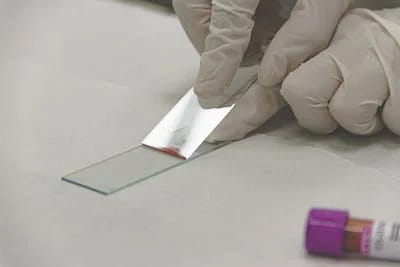The Case for Screening Donated Blood for mRNA Contamination
No regulatory body will allow it... seems a bit disingenuous dontcha think?
The history of blood transfusions is marred by preventable tragedies. The spread of Hepatitis C and HIV through tainted blood supplies in the 20th century serves as a grim reminder that delayed action in screening blood for emerging threats can have catastrophic consequences. Given these lessons, it is imperative that we confront a new and pressing concern: the transmission of mRNA vaccines through blood transfusions.
A New Form of Contamination?
The scientific community is increasingly recognizing that mRNA vaccines are transmissible. Several independent laboratories and researchers have provided compelling evidence supporting this claim:
Kevin McKernan, a genomics expert, presented findings at the Back to Basics conference showing that synthetic DNA samples, originating from mRNA vaccines, are found in the body at a greater volume than the vaccine itself, indicating replication.
Created for Health Vaccine Residual Analysis has further corroborated these findings with a quantum based analysis and is conducting research with the goal of turning off the production of spike protein.
My Cycle Story, published peer-reviewed research article demonstrating over 6,000 incidents of non-mRNA vaccinated women experiencing severe symptoms after close exposure to someone who had recently received the mRNA vaccine.
Basic blood labs reveal that people who never became sick with covid, nor produced antibodies (confirmed by negative IgG nucleocapsid testing), denied taking the genetic vaccination, and yet are somehow still manufacturing spike protein.
Genetic testing for synthetic mRNA based is available through a German company.
Dr. Ana Mihalcea, has demonstrated the presence of lipid nano particles housing synthetic mRNA in blood samples from donors who never received the gene vaccine.
If a pharmaceutical product is capable of replication and transmission, it must be classified accordingly—as a communicable disease or, as some legal arguments suggest, a genetically modified organism (GMO).
The Legal Framework
Globally, there is an effort to hold pharmaceutical companies accountable for potential harms caused by their products. In Australia, a legal case is being built against Pfizer and regulatory agencies, arguing that mRNA vaccines should be classified as genetically modified organisms. Notably, Moderna already applied for and received approval as a GMO in Australia—an admission that should raise serious concerns worldwide.
In the U.S., Kentucky law mandates that blood establishments screen for any known causative agent of blood-borne communicable diseases using FDA-approved tests (KY Rev Stat 214.452). This statute presents both an opportunity and a challenge. On one hand, the transmissibility of mRNA vaccines should logically necessitate their inclusion in required screenings. On the other hand, the requirement for FDA-approved testing creates a significant barrier, as history has shown that regulatory agencies are slow to act—often at the cost of human lives.
The Cost of Inaction
We have been here before. The refusal to promptly screen for HIV in blood donations resulted in thousands of hemophiliacs and patients with clotting disorders receiving contaminated blood products. The scandal of the contaminated blood crisis in the U.K., where children were given infected transfusions at school, is a tragic example of systemic failure.
Recent history shows that regulatory agencies and blood banks often operate reactively rather than proactively. A 5-cent test for Hepatitis C contamination was ignored by the Australian Red Cross, leading to untold suffering and preventable deaths. How many lives were lost simply because the industry refused to acknowledge an emerging risk?
A Call to Action
The case for screening blood for mRNA contamination is clear:
If communicable diseases are screened for in donated blood, and the mRNA vaccine behaves like a contagious agent, it must also be screened.
The burden of proof should not fall on the public to demonstrate harm; rather, the medical establishment must prove safety beyond doubt.
Waiting for FDA approval of mRNA blood screening tests means countless individuals will continue to receive potentially tainted transfusions.
The parallels between the tainted blood scandals of the past and today’s concerns about mRNA transmission are too stark to ignore. If history teaches us anything, it is that waiting for regulators to act after the damage is done is not an acceptable strategy. We must demand transparency, accountability, and immediate action to protect the integrity of the blood supply.
Lives depend on it.


